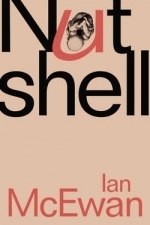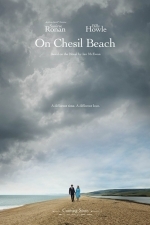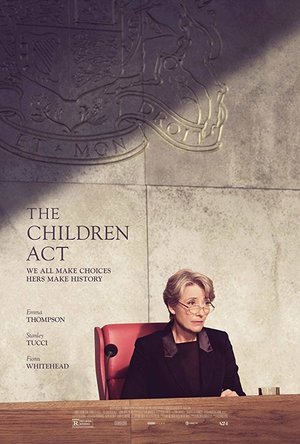Search
Zuky the BookBum (15 KP) rated Nutshell in Books
Mar 15, 2018
I’ve never read any of Ian McEwan’s work before, but it seems like I started on a good one, because almost everyone is saying this is his best yet!
This has such an intriguing and unique plot, it would be hard to pass it up if you saw it in store. Are there actually <i>any</i> other novels out there told from the PoV of a foetus?
Considering no one actually knows what it’s like to be a foetus, that is to say, we’ve all been one, but we don’t remember back that far, I feel like McEwan really <i>got</i> what it’s like to be in the womb through the third trimester.. I wasn’t sure how anyone could write as an unborn child but it was done so well in this! The child was a very likable character, he was witty, intelligent and interesting - certainly not things I would think to associate with an unborn child.
The overall plot was certainly different and intriguing, but it wasn’t exactly what I thought it was going to be. I didn’t expect this unborn child to be able to solve a murder or stop a crime etc, but I did think it was going to be more of a thriller mystery than it was. That’s not to the say that the plot made the story any less fun to read, I just had to alter my mindset into accepting this as a different sort of book.
Unfortunately for me, this didn’t move me as much as it has done other readers because this is a <i>Hamlet</i> retelling, but I’ve never read <i>Hamlet.</i> (I have pretty much no time for the “classics”, they tend to just bore me, there’s no way around that, I’m just not that kind of girl). So maybe some of the beauty of this was a bit lost on me?
Anyway, this was a very enjoyable read. A solid piece of fiction that has and will appeal to thousands.
This has such an intriguing and unique plot, it would be hard to pass it up if you saw it in store. Are there actually <i>any</i> other novels out there told from the PoV of a foetus?
Considering no one actually knows what it’s like to be a foetus, that is to say, we’ve all been one, but we don’t remember back that far, I feel like McEwan really <i>got</i> what it’s like to be in the womb through the third trimester.. I wasn’t sure how anyone could write as an unborn child but it was done so well in this! The child was a very likable character, he was witty, intelligent and interesting - certainly not things I would think to associate with an unborn child.
The overall plot was certainly different and intriguing, but it wasn’t exactly what I thought it was going to be. I didn’t expect this unborn child to be able to solve a murder or stop a crime etc, but I did think it was going to be more of a thriller mystery than it was. That’s not to the say that the plot made the story any less fun to read, I just had to alter my mindset into accepting this as a different sort of book.
Unfortunately for me, this didn’t move me as much as it has done other readers because this is a <i>Hamlet</i> retelling, but I’ve never read <i>Hamlet.</i> (I have pretty much no time for the “classics”, they tend to just bore me, there’s no way around that, I’m just not that kind of girl). So maybe some of the beauty of this was a bit lost on me?
Anyway, this was a very enjoyable read. A solid piece of fiction that has and will appeal to thousands.
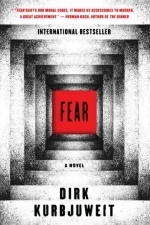
Fear: A Novel
Book
“Fear shifts our moral codes. It makes us accessories to murder. A great achievement.” —Herman...
Thriller
I was really looking forward to reading a new Ian McEwan novel, and I’m very pleased to say that I haven’t been disappointed.
Lessons is the story of Roland Baines’ life. His successes, loves, losses - all set against an historical background of the 20th and 21st centuries: World War 2, the Cuban Missile Crisis, Chernobyl and Covid 19 (and others besides, but there are too many to mention them all!).
I was completely engrossed, and it’s a book that you don’t want to race through. I love McEwans writing - so much is said in each sentence.
I’ll admit it now, a lot of what really kept my attention were the details about Germany: WW2 and it’s aftermath, Roland’s trips beyond the Berlin Wall and it’s fall.
The future is set for Alissa (Roland’s wife) when her English mother presents her with her journals, written when she travelled to Germany after the war. She had wanted to write articles about German Resistance during the war, and specifically the Scholls White Rose movement. These journals remained unpublished and unread 40 years later. And so when Alissa walks away from Roland and their baby to ensure her own dreams of literary success, it’s unsurprising even if it’ll ears callous.
The book is told from Roland’s point of view, first person, so we hear his inner voice throughout. What stood out most for me, was that his voice doesn’t change through the years. Yes, I know this is obvious - it’s the same book. What I mean is that what younger people often forget, is that the 72 year old man at the end of the book is the same as the 11 year old boy - just with 61 years experience. His experiences as an 11-14 year old with his piano teacher have a lasting and life-changing impact.
I loved this book and would highly recommend it. It’s a book to be savoured.
Lessons is the story of Roland Baines’ life. His successes, loves, losses - all set against an historical background of the 20th and 21st centuries: World War 2, the Cuban Missile Crisis, Chernobyl and Covid 19 (and others besides, but there are too many to mention them all!).
I was completely engrossed, and it’s a book that you don’t want to race through. I love McEwans writing - so much is said in each sentence.
I’ll admit it now, a lot of what really kept my attention were the details about Germany: WW2 and it’s aftermath, Roland’s trips beyond the Berlin Wall and it’s fall.
The future is set for Alissa (Roland’s wife) when her English mother presents her with her journals, written when she travelled to Germany after the war. She had wanted to write articles about German Resistance during the war, and specifically the Scholls White Rose movement. These journals remained unpublished and unread 40 years later. And so when Alissa walks away from Roland and their baby to ensure her own dreams of literary success, it’s unsurprising even if it’ll ears callous.
The book is told from Roland’s point of view, first person, so we hear his inner voice throughout. What stood out most for me, was that his voice doesn’t change through the years. Yes, I know this is obvious - it’s the same book. What I mean is that what younger people often forget, is that the 72 year old man at the end of the book is the same as the 11 year old boy - just with 61 years experience. His experiences as an 11-14 year old with his piano teacher have a lasting and life-changing impact.
I loved this book and would highly recommend it. It’s a book to be savoured.
Bob Mann (459 KP) rated On Chesil Beach (2018) in Movies
Sep 29, 2021
Flawed but moving tale of a bygone sexual era.
As you might notice from my lack of recent posts, the day job is getting in a way a bit at the moment. But one film I wanted to catch was this adaptation of Ian McEwan’s novel. What’s both an advantage and a disadvantage of catching a film late is that you can’t help avoid absorbing some of the reviews of others: Kevin Maher of the Times gave this a rather sniffy two stars; Amy from “Oh That Film Blog” was much more measured (an excellent review: man, that girl can write!). Last night, I actually ended up enjoying the film much more than I was expecting to.
Set against Dorset’s spectacular shingle bank of Chesil Beach (which is a bitch to walk along!) the story, set primarily in 1962, joins two newly-weds Florence (Saoirse Ronan, “Brooklyn“, “Lady Bird“) and Edward (Billy Howle, “Dunkirk“) about to embark on the sexual adventure of their consummation at a seaside hotel. The timing of the film is critical: 1962 really marked the watershed between the staid conservatism and goody-two-shoes-ness of the 50’s and the sexual liberation of the swinging sixties. Sex before marriage was frowned upon. The problem for Florence and Edward is that sex after marriage is looking pretty unlikely too! For the inexperienced couple have more hang-ups about sex than there are pebbles on the beach.
The lead-up to their union is squirm-inducing to watch: a silent silver-service meal in their room; incompetent fumbling with zippers; shoes that refuse to come off. To prolong the agony for the viewer, we work through flashbacks of their first meeting at Oxford University and their dysfunctional family lives: for Florence a bullying father and mother (Samuel West and Emily Watson) and for Edward a loving but stressed father (TV regular, Adrian Scarborough) due to a mentally impaired mother (Anne-Marie Duff, “Suffragette“, “Before I Go To Sleep“).
As Ian McEwan is known to do (as per the end of “Atonement” for example), there are a couple of clever “Oh My God” twists in the tale: one merely hinted at in flashback; another involving a record-buying child that is also unresolved but begs a massive question.
The first half of the film is undoubtedly better than the last: while the screenplay is going for the “if only” twist of films like “Sliding Doors” and “La La Land“, the film over-stretches with some dodgy make-up where alternative actors would have been a far better choice. The ending still had the power to move me though.
Saoirse Ronan is magnificent: I don’t think I’ve seen the young Irish-American in a film I didn’t enjoy. Here she is back with a McEwan adaptation again and bleeds discomfort with every line of her face. Her desperate longing to talk to someone – such as the kindly probing vicar – is constantly counteracted by her shame and embarassment. Howle also holds his own well (no pun intended) but when up against the acting tour de force of Ronan he is always going to appear in second place.
A brave performance comes from Anne-Marie Duff who shines as the mentally wayward mother. The flashback where we see how she came to be that way is wholly predicatable but still manages to shock. And Duff is part of a strong ensemble cast who all do their bit.
Another star of the show for me is the photography by Sean Bobbitt (“12 Years a Slave“) which portrays the windswept Dorset beach beautifully but manages to get the frame close and claustrophobic when it needs to be. Wide panoramas with characters barely on the left and right of the frame will play havoc with DVD ratios on TV, but work superbly on the big screen.
Directed by stage-director Dominic Cooke, in his movie-directing debut, this is a brave story to try to move from page to screen and while it is not without faults it is a ball-achingly sad tale that moved me. Recommended if you enjoyed the similarly sad tale of “Atonement”.
Set against Dorset’s spectacular shingle bank of Chesil Beach (which is a bitch to walk along!) the story, set primarily in 1962, joins two newly-weds Florence (Saoirse Ronan, “Brooklyn“, “Lady Bird“) and Edward (Billy Howle, “Dunkirk“) about to embark on the sexual adventure of their consummation at a seaside hotel. The timing of the film is critical: 1962 really marked the watershed between the staid conservatism and goody-two-shoes-ness of the 50’s and the sexual liberation of the swinging sixties. Sex before marriage was frowned upon. The problem for Florence and Edward is that sex after marriage is looking pretty unlikely too! For the inexperienced couple have more hang-ups about sex than there are pebbles on the beach.
The lead-up to their union is squirm-inducing to watch: a silent silver-service meal in their room; incompetent fumbling with zippers; shoes that refuse to come off. To prolong the agony for the viewer, we work through flashbacks of their first meeting at Oxford University and their dysfunctional family lives: for Florence a bullying father and mother (Samuel West and Emily Watson) and for Edward a loving but stressed father (TV regular, Adrian Scarborough) due to a mentally impaired mother (Anne-Marie Duff, “Suffragette“, “Before I Go To Sleep“).
As Ian McEwan is known to do (as per the end of “Atonement” for example), there are a couple of clever “Oh My God” twists in the tale: one merely hinted at in flashback; another involving a record-buying child that is also unresolved but begs a massive question.
The first half of the film is undoubtedly better than the last: while the screenplay is going for the “if only” twist of films like “Sliding Doors” and “La La Land“, the film over-stretches with some dodgy make-up where alternative actors would have been a far better choice. The ending still had the power to move me though.
Saoirse Ronan is magnificent: I don’t think I’ve seen the young Irish-American in a film I didn’t enjoy. Here she is back with a McEwan adaptation again and bleeds discomfort with every line of her face. Her desperate longing to talk to someone – such as the kindly probing vicar – is constantly counteracted by her shame and embarassment. Howle also holds his own well (no pun intended) but when up against the acting tour de force of Ronan he is always going to appear in second place.
A brave performance comes from Anne-Marie Duff who shines as the mentally wayward mother. The flashback where we see how she came to be that way is wholly predicatable but still manages to shock. And Duff is part of a strong ensemble cast who all do their bit.
Another star of the show for me is the photography by Sean Bobbitt (“12 Years a Slave“) which portrays the windswept Dorset beach beautifully but manages to get the frame close and claustrophobic when it needs to be. Wide panoramas with characters barely on the left and right of the frame will play havoc with DVD ratios on TV, but work superbly on the big screen.
Directed by stage-director Dominic Cooke, in his movie-directing debut, this is a brave story to try to move from page to screen and while it is not without faults it is a ball-achingly sad tale that moved me. Recommended if you enjoyed the similarly sad tale of “Atonement”.
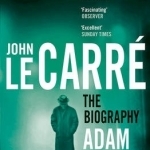
John le Carre: The Biography
Book
Over half a century since The Spy Who came in from the Cold made John le Carre a worldwide,...
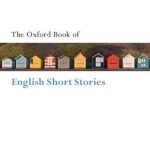
The Oxford Book of English Short Stories
Book
The Oxford Book of English Short Stories , edited by A. S. Byatt, herself the author of several...
Emma @ The Movies (1786 KP) rated The Children Act (2018) in Movies
Sep 25, 2019
Emma Thompson and Stanley Tucci in a movie together... yeeeees. Get me a ticket immediately. Based on a book by Ian McEwan, and no of course I haven't read it. I was exoecting something run of the mill, good, but nothing with a wow factor. I certainly wasn't expecting to be having to stiffle sobs and tears.
The heart breaking story really does get you caught up. Watching Fiona's hard and logical exterior break is really something to behold. How I wasn't blind from the tears when she started performing their song at the recital I will never know. Although, full disclosure, at that point I was leaning on my hands with my cardigan sleeves firmly wedged under the rims of my glasses.
Having never really had any faith, or certainly never any that I would have been so conflicted over, I can't say how accurate a portrayal it was, but it felt traumatisingly real.
As a smaller release this was allocated one of the dinky screens that has about 120 seats. A third of the seats were taken, and I'm going to make wild assumptions now, I would guess that they were all in book groups.
To go off-piste a bit... I mentioned in a previous post that I feel like it's the adults that cause the most disturbance at the cinema. This showing would prove my point. At the beginning I couldn't hear the ads over the noise of the 30 odd people at the time (and they were very odd) talking so loud. I have been to quieter bars.
That was followed up by two people moving seats after the film started, and when the couple next to them started rustling a sweet bag the guy told them to stop as it was annoying him... Don't have the cheek to lecture people when you shouldn't even be sitting there. Random annoying people is something you have to suck up. I bitch about it on Twitter, not to the actual people. When you buy a ticket you're basically checking the box that says "if I end up next to a monster, so be it." I'm super passive aggressive when it comes to people like that, I can almost guarantee that in the same situation I would have missed the rest of the film because I'd be sitting there staring at him as I rustled the bag deliberately for the next two hours.
The moral of this story is don't be a dick to people about something that is expected in the cinema... because you might be sitting next to me.
The heart breaking story really does get you caught up. Watching Fiona's hard and logical exterior break is really something to behold. How I wasn't blind from the tears when she started performing their song at the recital I will never know. Although, full disclosure, at that point I was leaning on my hands with my cardigan sleeves firmly wedged under the rims of my glasses.
Having never really had any faith, or certainly never any that I would have been so conflicted over, I can't say how accurate a portrayal it was, but it felt traumatisingly real.
As a smaller release this was allocated one of the dinky screens that has about 120 seats. A third of the seats were taken, and I'm going to make wild assumptions now, I would guess that they were all in book groups.
To go off-piste a bit... I mentioned in a previous post that I feel like it's the adults that cause the most disturbance at the cinema. This showing would prove my point. At the beginning I couldn't hear the ads over the noise of the 30 odd people at the time (and they were very odd) talking so loud. I have been to quieter bars.
That was followed up by two people moving seats after the film started, and when the couple next to them started rustling a sweet bag the guy told them to stop as it was annoying him... Don't have the cheek to lecture people when you shouldn't even be sitting there. Random annoying people is something you have to suck up. I bitch about it on Twitter, not to the actual people. When you buy a ticket you're basically checking the box that says "if I end up next to a monster, so be it." I'm super passive aggressive when it comes to people like that, I can almost guarantee that in the same situation I would have missed the rest of the film because I'd be sitting there staring at him as I rustled the bag deliberately for the next two hours.
The moral of this story is don't be a dick to people about something that is expected in the cinema... because you might be sitting next to me.
Bob Mann (459 KP) rated The Children Act (2018) in Movies
Sep 28, 2021
“And the Oscar goes to”… (or should go to)… “Dame Emma Thompson”.
Given my last review was for “The Equalizer 2“, where Denzel was judge, jury and executioner, it’s a nice seque that this film follows the life of a senior judge in London’s Law Courts: trying to do the justice job, but in the right way!
Judge Maye (Thompson) is a childless wife to her loving husband Jack (Tucci), but is also a workaholic. This is driving the long-term couple to the point of infidelity: a fact the ever-focused Fiona – whose life, to her, probably feels to be in a perfect if selfish equilibrium – is oblivious to. With Fiona’s intense but comfortable world about to cave in around her, her increasing stress is not helped by the latest case she is working on: one where Adam ( Fionn Whitehead from “Dunkirk“), a Jehovah’s Witness boy and a minor, is refusing on religious grounds the blood transfusion he desperately needs to fight his leukaemia. Fiona’s decisions in the months ahead go much further than a simple judgement on the case.
Two acting giants – one born in London; one born in New York – tower over this Ian McEwan adaptation like leviathons. I bandy around the phrase “national treasure” a lot in these reviews but, if there was a league table of national treasures, Emma Thompson would qualify for the Champion’s League every season. Here she is simply breathtakingly powerful in the lead role of Judge Fiona Maye, exhibiting such extremes of emotion that you would like to think that an Oscar nomination would be assured. (However, before I run out and put a £10 bet on her to win, the film is such a small British film that unfortunately both a nomination and a win seem unlikely! THIS IS A CRIME! So I have added the tag #OscarBuzz to this post…. please share and lobby people, lobby! Perhaps at the very least we can hope for some BAFTA recognition).
Sometimes a masterly lead performance can make a co-star performance seem unbalanced, but no such danger here. Stanley Tucci makes a perfect acting foil for Thompson: if he were a wine he would be described as “exasperation, frustration, compassion with strong notes of respect”. And he carries it off with perfection.
This is an incredibly intelligent film, working on so many different levels and subject to so much interpretation. Fiona’s feelings for the troubled teenager feel more maternal than sexual, but when those feelings become returned and escalate the whole piece develops a queasily oedipal quality. Many films have focused on illicit attractions between teacher and pupil, but here lies a new variation, with Maye fighting against her best professional insticts to ‘do the right thing’. “I’m frightened of myself” she eventually wails to a colleague.
In his opening hospital scenes*, Adam seems completely other-wordly compared to a typical teen and this comes across as utterly false. That is, until you consider the oddness of his family background and Jehovah’s Witness upbringing. As such, the film just about gets away with it. Whitehead does a good job with a difficult role. (*It took my wife to point out – after the film, thank goodness – the similarities between this hospital scene and a famous guitar-playing scene in “Airplane” at which I dissolved into guffaws!).
If you’ve been in a court, you’ll know that there is something regal and magical about a judge in full regalia entering a packed courtroom. So it’s unusual to see the view from the other side of the door… a non-descript office corridor and a non-descript door. Helping the judge on this side of the door is her PA Nigel, played by the brilliant Jason Watkins: a TV regular (e.g. “Line of Duty”, “W1A”) but seen far less at the movies.
As a story of obsessive fixation, it borders on McEwan’s disturbing earlier work “Enduring Love”. And it has the potential to go in lots of interesting directions as a sort of bonkers platonic love triangle (“He wants to live with US?” splutters Tucci). Where the story does end up going was not particularly to my liking, and a melodramatic concert scene was – for me – a little overdone. However it does give rise to a scene (the ‘sopping wet’ scene) that shows Thompson at her most brilliant: if she DID get Oscar or BAFTA nominated then this will be her pre-announcement snippet.
It’s a great film for showcasing acting talent, but beware: it’s not got a “lot of laffs”. As such it’s very much a “Father Ted film” that takes a while to recover from.
Judge Maye (Thompson) is a childless wife to her loving husband Jack (Tucci), but is also a workaholic. This is driving the long-term couple to the point of infidelity: a fact the ever-focused Fiona – whose life, to her, probably feels to be in a perfect if selfish equilibrium – is oblivious to. With Fiona’s intense but comfortable world about to cave in around her, her increasing stress is not helped by the latest case she is working on: one where Adam ( Fionn Whitehead from “Dunkirk“), a Jehovah’s Witness boy and a minor, is refusing on religious grounds the blood transfusion he desperately needs to fight his leukaemia. Fiona’s decisions in the months ahead go much further than a simple judgement on the case.
Two acting giants – one born in London; one born in New York – tower over this Ian McEwan adaptation like leviathons. I bandy around the phrase “national treasure” a lot in these reviews but, if there was a league table of national treasures, Emma Thompson would qualify for the Champion’s League every season. Here she is simply breathtakingly powerful in the lead role of Judge Fiona Maye, exhibiting such extremes of emotion that you would like to think that an Oscar nomination would be assured. (However, before I run out and put a £10 bet on her to win, the film is such a small British film that unfortunately both a nomination and a win seem unlikely! THIS IS A CRIME! So I have added the tag #OscarBuzz to this post…. please share and lobby people, lobby! Perhaps at the very least we can hope for some BAFTA recognition).
Sometimes a masterly lead performance can make a co-star performance seem unbalanced, but no such danger here. Stanley Tucci makes a perfect acting foil for Thompson: if he were a wine he would be described as “exasperation, frustration, compassion with strong notes of respect”. And he carries it off with perfection.
This is an incredibly intelligent film, working on so many different levels and subject to so much interpretation. Fiona’s feelings for the troubled teenager feel more maternal than sexual, but when those feelings become returned and escalate the whole piece develops a queasily oedipal quality. Many films have focused on illicit attractions between teacher and pupil, but here lies a new variation, with Maye fighting against her best professional insticts to ‘do the right thing’. “I’m frightened of myself” she eventually wails to a colleague.
In his opening hospital scenes*, Adam seems completely other-wordly compared to a typical teen and this comes across as utterly false. That is, until you consider the oddness of his family background and Jehovah’s Witness upbringing. As such, the film just about gets away with it. Whitehead does a good job with a difficult role. (*It took my wife to point out – after the film, thank goodness – the similarities between this hospital scene and a famous guitar-playing scene in “Airplane” at which I dissolved into guffaws!).
If you’ve been in a court, you’ll know that there is something regal and magical about a judge in full regalia entering a packed courtroom. So it’s unusual to see the view from the other side of the door… a non-descript office corridor and a non-descript door. Helping the judge on this side of the door is her PA Nigel, played by the brilliant Jason Watkins: a TV regular (e.g. “Line of Duty”, “W1A”) but seen far less at the movies.
As a story of obsessive fixation, it borders on McEwan’s disturbing earlier work “Enduring Love”. And it has the potential to go in lots of interesting directions as a sort of bonkers platonic love triangle (“He wants to live with US?” splutters Tucci). Where the story does end up going was not particularly to my liking, and a melodramatic concert scene was – for me – a little overdone. However it does give rise to a scene (the ‘sopping wet’ scene) that shows Thompson at her most brilliant: if she DID get Oscar or BAFTA nominated then this will be her pre-announcement snippet.
It’s a great film for showcasing acting talent, but beware: it’s not got a “lot of laffs”. As such it’s very much a “Father Ted film” that takes a while to recover from.
